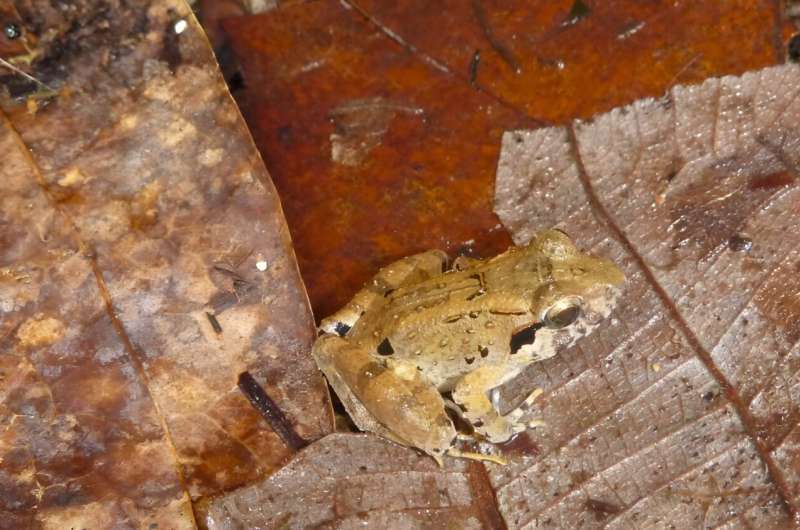This tiny amphibian, about the size of a quarter, was found on the Indonesian island of Sulawesi by a team of researchers from the McGuire Lab at Berkeley and the Bogor Zoology Museum.
While exploring the island’s diverse habitats, the team stumbled upon something unexpected: frog egg nests perched on leaves and moss-covered boulders, well above the ground. This was unusual, as most frogs lay their eggs in water.
But this new species, named Limnonectes phyllofolia (meaning “leaf-nester”), has a different trick up its sleeve. The males guard the eggs on leaves, keeping them moist and protected from bacteria and fungi. This behavior is rare among frogs, and the researchers believe it might be related to the frogs’ small size and unusual egg-laying habits.
Interestingly, these tiny frogs also sport barely visible fangs, a characteristic of their fanged frog family. However, their fangs are much smaller than those of their bigger relatives, who use them to fight for territory and mates. The researchers think that since these frogs lay their eggs on land, they don’t need such large fangs for aquatic battles.
This discovery highlights the incredible diversity of life on Earth, especially in places like Sulawesi with its vast array of habitats. It also underscores the importance of protecting these ecosystems, as many of the species found there are unique and threatened by habitat loss.
